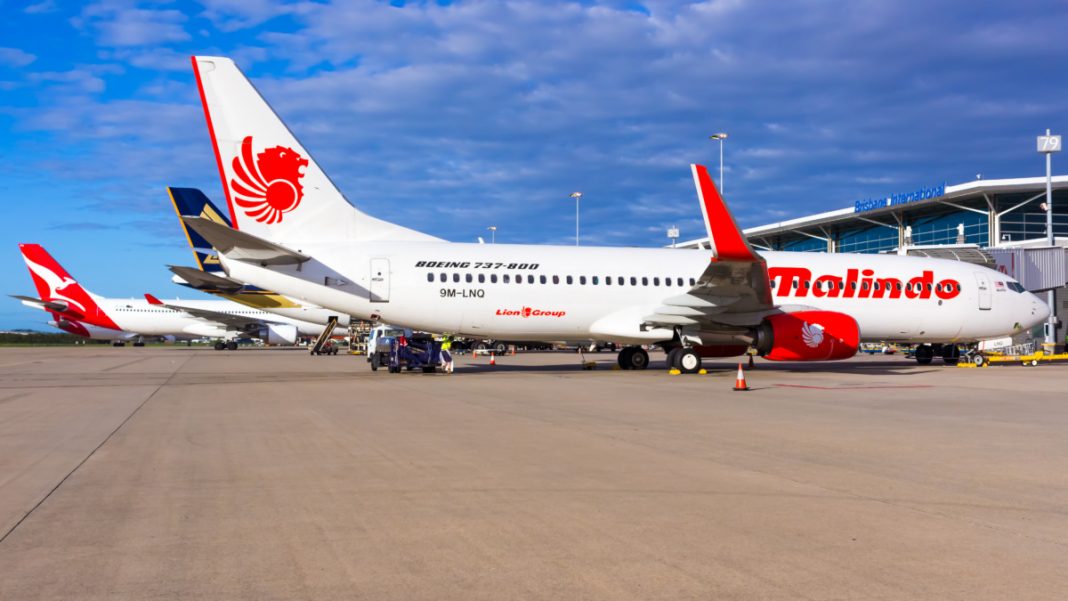Australia’s competition and consumer watchdog is launching an inquiry into the behavior of some international airlines. With the Australian Government imposing stringent caps on the number of passengers airlines can fly into Australia, some airlines are bumping passengers on cheap tickets in favor of passengers flying on more expensive tickets. It’s a tactic that isn’t going down very well, and the Australian Competition and Consumer Commission is on the case.

Caps on passenger numbers and arrival limits
Despite Australia closing its borders to non-citizens back in March and forbidding Australians to leave the country, some airlines kept flying into the country. There was a demand from Australians returning home and non-citizens leaving the country. It wasn’t a massive amount of traffic, but it was enough to support some services.
In an attempt to ease the strain on Australia’s health and quarantine facilities, the Australian Government later imposed daily incoming international passenger limits at airports and caps on how many passengers airlines could fly in on each flight.
Adelaide and Brisbane Airport will only accept 500 incoming international passengers a week. Perth accepts 525 incoming international passengers a week, and Sydney is taking 350 incoming international passengers a day. Melbourne remains closed to international arrivals. Because of these limits, airlines can only sell a limited number of seats on each flight. Qatar Airways has told The Guardian the Australian Government capped its passenger limit into Sydney at just 30 passengers per flight.
The passenger limit per flight at other airports can lift slightly, up to 50 passengers per flight, depending on how busy the airport handling the arrival is.

Seat supply dries up and fares soar
As a result, snagging a seat on a flight to Australia has become very difficult. Prices have suddenly shot up. Limited to only a handful of passengers, airlines are prioritizing passengers paying the highest fares.
Passengers booked on cheaper fares are finding their flights “canceled.” But, the flight often isn’t canceled, the passenger’s booking is. A higher-yielding passenger takes Their place.
It’s a problem that is only impacting travelers returning to Australia. The Australian Government does not impose passenger limits on outbound flights. But it is leaving thousands of people stranded overseas, often at the last minute, and usually out of pocket as they battle to get a refund or a rebooking.
The Australian Government is relatively unsympathetic. They argue that people who need to return to Australia should have done so in the months before limits were imposed.
Australians stranded in Beirut after last week’s explosion has highlighted the problem. The Australian Government says impacted travelers should make their own way home. But getting a seat on a flight from Beirut to Australia is nigh on impossible.
“It’s up to the airlines, not the Government, to decide who it sells tickets to,” says the Australian Government’s Smartraveller website.

Passengers stranded, government unhelpful
Unfortunately, it is easy for politicians to ignore the logistical hurdles of uprooting families, pulling kids out of schools, transferring jobs, and selling homes. It takes time, and unlike politicians, most stranded travelers cannot bill the taxpayer for the costs incurred.
Airlines are generally reluctant to comment on the practice. Only Air New Zealand has admitted to prioritizing premium passengers. From a commercial perspective, it’s an understandable move. From a goodwill perspective, not so.
It is a problem of the Australian Government’s making. Ironically, their investigative watchdog, the Australian Competition and Consumer Commission are now on the case. But ultimately, there is probably not a great deal the Commission can do. It may shame the airlines into behaving better. But forcing better behavior is easier said than done.
There’s one easy way to fix the problem – lift the passenger limits on incoming aircraft and at Australia’s airports. It doesn’t need to be open slather, but it should be reasonable.
[ad_2]
Source link


